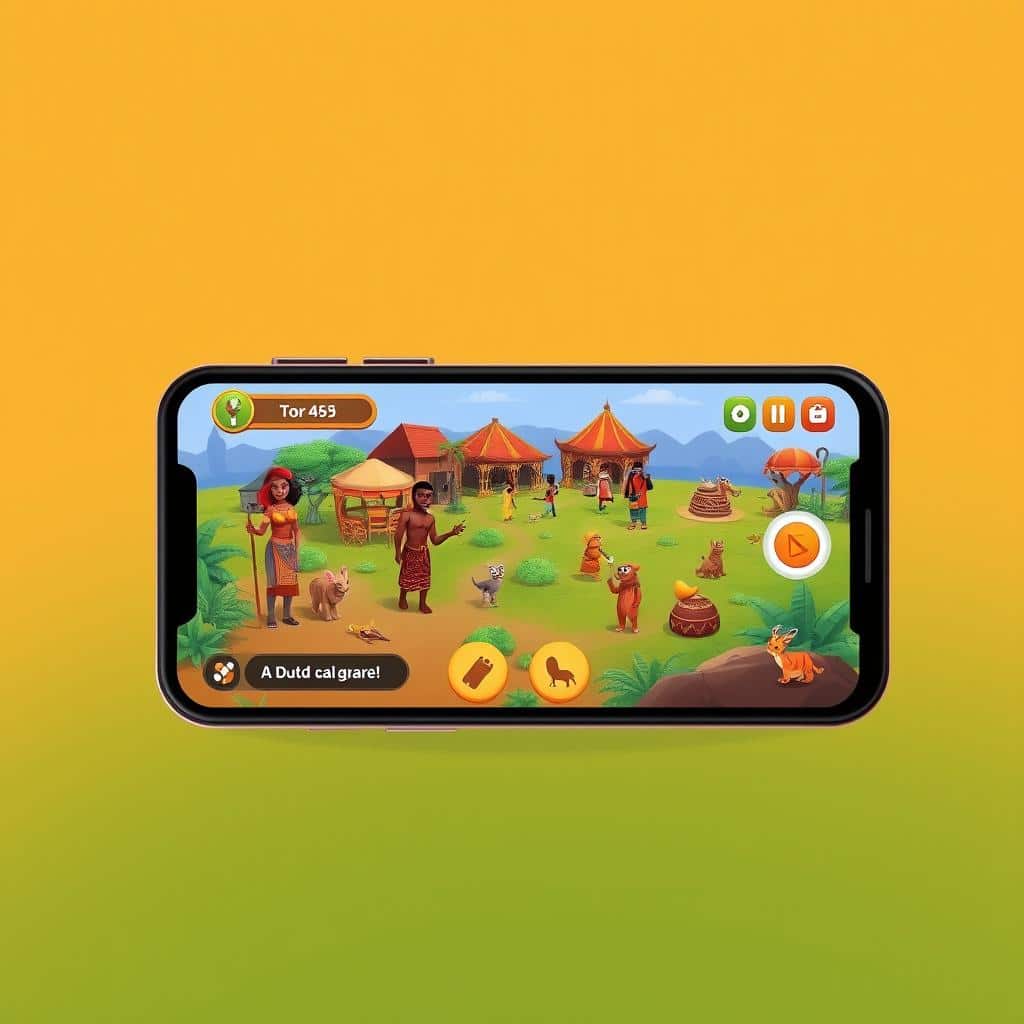Africa’s economic landscape is transforming rapidly, creating unprecedented opportunities for entrepreneurs and investors. With a young population, abundant natural resources, and increasing digital connectivity, the continent is becoming a hotbed for innovation and business growth. This comprehensive guide explores the most promising business ideas in Africa, backed by real success stories and practical implementation strategies.
Africa’s Economic Landscape: A Growing Frontier
Africa’s economic trajectory shows remarkable resilience and potential. With an average GDP growth of 3.8% across the continent in recent years, Africa outpaces many global regions. This growth is driven by several key factors:
Key Growth Drivers
- Young, growing population (median age of 19.7 years)
- Expanding middle class with increasing purchasing power
- Rapid urbanization creating new consumer markets
- Digital transformation and increasing internet penetration
- Abundant natural resources and agricultural potential
Leading Economic Sectors
- Agriculture (contributing 30-60% of GDP in many countries)
- Telecommunications and digital services
- Renewable energy (particularly solar)
- Financial services and fintech
- Manufacturing and infrastructure development
The African Continental Free Trade Area (AfCFTA) agreement, which came into effect in 2021, is creating the world’s largest free trade area, connecting 1.3 billion people across 54 countries with a combined GDP of $3.4 trillion. This integration is reducing trade barriers and opening new markets for entrepreneurs across the continent.
Stay Updated on African Market Trends
Get our quarterly African Business Insights report with the latest economic data, emerging trends, and market opportunities.
1. Renewable Energy Solutions

Africa’s abundant sunshine makes solar energy one of the most promising business ideas in Africa. With over 600 million people lacking reliable electricity access, renewable energy solutions offer both profit potential and social impact.
Market Potential
The renewable energy sector in Africa is projected to reach $29 billion by 2027, growing at a CAGR of 9.7%. Solar solutions are particularly viable as most sub-Saharan regions receive 300+ days of sunshine annually, creating perfect conditions for solar power generation.
Success Stories
M-KOPA (Kenya, Tanzania, Uganda)
This innovative company pioneered the “pay-as-you-go” solar model, allowing customers to make small daily payments via mobile money until they own their solar system outright. M-KOPA has connected over 750,000 homes to solar power and raised more than $190 million in funding.
Daystar Power (West Africa)
Focusing on commercial and industrial clients, Daystar Power provides solar solutions that reduce electricity costs by up to 40%. The company recently secured $38 million in funding to expand operations across West Africa.
Implementation Challenges and Solutions
Advantages
- Low operational costs after initial investment
- Growing government incentives and subsidies
- Multiple revenue models (direct sales, PAYG, leasing)
- Positive environmental and social impact
Challenges
- High upfront capital requirements
- Technical expertise needed for installation/maintenance
- Last-mile distribution in remote areas
- Consumer financing in low-income markets
2. Agribusiness and Food Processing

With 60% of the world’s uncultivated arable land and a growing population to feed, agribusiness represents one of the most sustainable business ideas in Africa. The sector is expected to reach $1 trillion by 2030, according to the World Bank.
High-Potential Agribusiness Ventures
Food Processing
Converting raw agricultural products into packaged foods addresses post-harvest losses (currently 30-50%) while adding significant value. Focus areas include tomato paste, fruit juices, dried fruits, and cassava products.
Cold Chain Solutions
Refrigerated storage and transportation services help preserve perishable products, reducing waste and enabling farmers to reach larger markets with fresh produce.
Agricultural Technology
Drone services for farm monitoring, soil testing, precision farming tools, and farm management software are increasingly in demand across the continent.
Success Story: Twiga Foods (Kenya)
Founded in 2014, Twiga Foods has revolutionized food distribution in Kenya by connecting farmers directly with retailers through a mobile-based platform. The company handles logistics and payments, ensuring farmers receive fair prices while retailers get reliable supplies. Twiga has raised over $100 million in funding and works with 100,000+ farmers and 40,000+ vendors.
“Africa doesn’t need aid as much as it needs efficient business systems. Agribusiness is where technology, innovation and agriculture meet.”
3. Healthcare Solutions

Healthcare in Africa presents significant opportunities for entrepreneurs who can address accessibility, affordability, and quality challenges. The African healthcare market is projected to reach $259 billion by 2030.
Promising Healthcare Ventures
- Telemedicine platforms connecting patients with doctors remotely, particularly valuable in underserved rural areas
- Diagnostic services offering affordable testing for common conditions
- Pharmaceutical distribution improving access to essential medicines
- Medical equipment supply for clinics and hospitals
- Health insurance innovations making coverage accessible to more Africans
Success Story: Zipline (Rwanda, Ghana)
Zipline has pioneered drone delivery of medical supplies in Africa, starting in Rwanda and expanding to Ghana. Their drones deliver blood, vaccines, and essential medicines to remote health facilities within minutes, saving countless lives. The company has completed over 275,000 commercial deliveries and is valued at over $2.75 billion.
4. Fintech and Digital Payment Solutions

Africa’s fintech revolution is addressing the continent’s historically low banking penetration rates. With mobile phone adoption exceeding 80% in many countries, digital financial services are leapfrogging traditional banking infrastructure.
Key Fintech Opportunities
Consumer-Focused Solutions
- Mobile money services
- Micro-lending platforms
- Savings and investment apps
- Cross-border remittance solutions
Business-Focused Solutions
- Payment processing for merchants
- Supply chain financing
- Business banking alternatives
- Accounting and financial management tools
Success Story: Flutterwave (Pan-African)
Founded in 2016, Flutterwave has built a payment infrastructure that enables businesses to make and accept payments across Africa. The company processes transactions worth billions of dollars annually, serves over 290,000 businesses, and operates in 34 African countries. Flutterwave reached unicorn status in 2021 with a valuation exceeding $3 billion.
Market Insight: Africa processes more than $490 billion in mobile money transactions annually, representing nearly two-thirds of the global total. This demonstrates the enormous potential for fintech solutions tailored to African markets.
5. E-commerce and Retail Solutions

E-commerce is growing rapidly across Africa, driven by increasing internet penetration, smartphone adoption, and a young, tech-savvy population. The African e-commerce market is projected to reach $75 billion by 2025.
E-commerce Business Models
- Marketplace platforms connecting buyers and sellers across various product categories
- Niche e-commerce focusing on specific product categories like fashion, electronics, or home goods
- Last-mile delivery services solving the logistics challenges of e-commerce fulfillment
- Cross-border e-commerce enabling Africans to shop from international retailers
- Social commerce leveraging platforms like WhatsApp, Instagram, and Facebook for sales
Success Story: Jumia (Pan-African)
Often called the “Amazon of Africa,” Jumia operates in 11 African countries, offering everything from electronics to fashion. The company has built its own logistics network to overcome delivery challenges and pioneered cash-on-delivery payment options to address low credit card penetration. Jumia became the first African tech startup to list on the New York Stock Exchange in 2019.
| E-commerce Challenge | Innovative Solution | Business Opportunity |
| Limited delivery infrastructure | Crowdsourced delivery networks | Last-mile logistics platforms |
| Low credit card penetration | Mobile money integration | Payment gateway services |
| Address verification issues | GPS-based location systems | Address verification APIs |
| Limited internet access | USSD and SMS-based shopping | Offline-compatible e-commerce platforms |
6. Education Technology

With over 400 million people under the age of 15, Africa has an enormous demand for quality education. EdTech solutions are addressing challenges like teacher shortages, limited infrastructure, and accessibility issues.
EdTech Opportunities
Digital Learning Platforms
Online courses, educational apps, and digital content tailored to African curricula and learning needs.
Low-Cost School Models
Affordable private schools using technology to deliver quality education at scale with standardized systems.
Skills Development
Vocational training platforms focusing on practical, market-relevant skills like programming, digital marketing, and entrepreneurship.
Success Story: Andela (Pan-African)
Andela identifies talented software developers across Africa and connects them with global tech companies. Their innovative model combines education with employment, providing intensive training followed by real-world work opportunities. Andela has raised over $180 million in funding and trained thousands of developers who now work with companies like Microsoft, Facebook, and Google.
Explore EdTech Market Opportunities
Download our comprehensive guide to the African education technology landscape, including market size data, growth projections, and implementation strategies.
7. Sustainable Tourism Ventures

Africa’s unparalleled natural beauty, diverse wildlife, and rich cultural heritage create tremendous opportunities for sustainable tourism ventures. The sector is rebounding strongly post-pandemic, with a growing emphasis on responsible and authentic experiences.
Sustainable Tourism Opportunities
- Eco-lodges and sustainable accommodations using renewable energy and environmentally friendly practices
- Community-based tourism where local communities directly benefit from and participate in tourism activities
- Cultural experience platforms connecting travelers with authentic local experiences
- Conservation tourism combining wildlife viewing with conservation education and activities
- Adventure tourism offering hiking, climbing, water sports, and other outdoor activities
Success Story: Wilderness Safaris (Southern Africa)
Operating across seven African countries, Wilderness Safaris has pioneered the concept of responsible luxury tourism. Their 4Cs business approach (Commerce, Conservation, Community, and Culture) ensures that tourism benefits local communities and supports conservation efforts. The company employs over 2,500 people, most from nearby communities, and has helped protect over 2.3 million acres of wildlife habitat.
Regional Spotlight: East Africa (Kenya, Tanzania, Rwanda) leads in wildlife tourism, while North Africa excels in cultural and historical tourism. West Africa is emerging as a cultural tourism destination, and Southern Africa offers diverse experiences from wine tourism to adventure activities.
8. Waste Management and Recycling

Africa’s rapid urbanization and population growth are creating significant waste management challenges—and business opportunities. Innovative waste collection, recycling, and upcycling ventures are addressing environmental issues while creating jobs and valuable products.
Waste Management Business Models
Collection and Processing
- Waste collection services in underserved areas
- Sorting and processing facilities
- Organic waste composting
- E-waste recycling
Value-Added Products
- Recycled plastic products (furniture, construction materials)
- Upcycled consumer goods
- Biogas production from organic waste
- Fertilizer from composting
Success Story: Wecyclers (Nigeria)
Wecyclers tackles urban waste management in Lagos using a fleet of cargo bikes to collect recyclable waste from households. Participants earn points for recyclables, which they can exchange for household items, food, or cash. The company has created over 200 jobs, collected thousands of tons of waste, and won multiple international awards including the King Baudouin African Development Prize.
“In the challenge of waste management in Africa lies a tremendous opportunity to create sustainable businesses that solve environmental problems while generating employment and economic value.”
9. Digital Content and Entertainment

Africa’s entertainment industry is experiencing explosive growth, driven by increasing internet access, smartphone penetration, and a young population hungry for relevant content. From music streaming to video production, opportunities abound for entrepreneurs in the digital content space.
Digital Content Opportunities
- Video streaming platforms featuring African movies, series, and documentaries
- Music streaming services showcasing African artists and genres
- Podcast networks covering topics relevant to African audiences
- Mobile gaming with culturally relevant themes and characters
- Content production studios creating original African content
Success Story: iROKOtv (Nigeria)
Founded in 2011, iROKOtv has become the world’s largest distributor of Nigerian movies and TV series (Nollywood content). The platform offers subscription-based streaming to audiences across Africa and the diaspora. iROKOtv has raised over $40 million in funding and expanded into content production with ROK Studios, which was later acquired by Canal+ Group.



10. Logistics and Transportation Solutions

Logistics remains one of the biggest challenges—and opportunities—across Africa. With fragmented transportation networks and complex supply chains, innovative logistics solutions can unlock tremendous value for businesses and consumers alike.
Logistics Business Opportunities
Last-Mile Delivery
Services connecting e-commerce platforms and retailers with customers, especially in areas with poor addressing systems or limited infrastructure.
Cold Chain Logistics
Temperature-controlled transportation and storage for agricultural products, pharmaceuticals, and other perishable goods.
Freight Forwarding
Services helping businesses navigate the complexities of cross-border trade, customs clearance, and international shipping.
Success Story: Kobo360 (Pan-African)
Kobo360 has built a digital logistics platform that connects cargo owners with truck owners, optimizing the supply chain for the movement of goods. The company uses technology to match supply with demand, provide real-time tracking, and facilitate payments. Operating in Nigeria, Ghana, Kenya, and Uganda, Kobo360 has onboarded over 50,000 trucks and drivers and serves major clients like Unilever, Dangote Group, and DHL.
Implementation Note: Logistics ventures require strong local knowledge and partnerships to navigate the unique challenges of each market. Successful entrepreneurs in this space typically combine technology with deep operational expertise and local networks.
Regional Business Opportunities Across Africa

Africa’s 54 countries offer diverse business landscapes with unique opportunities and challenges. Understanding regional differences is crucial for successful market entry and expansion.
- Key Markets: Egypt, Morocco, Tunisia
- Strengths: Strong manufacturing base, proximity to European markets
- Top Sectors: Renewable energy, manufacturing, tourism
- Business Climate: More developed infrastructure, higher GDP per capita
- Opportunity: Gateway to Middle Eastern and European markets
North Africa
- Key Markets: Kenya, Rwanda, Ethiopia, Tanzania
- Strengths: Digital innovation, regional integration
- Top Sectors: Fintech, agribusiness, renewable energy
- Business Climate: Fast-growing economies, tech hubs
- Opportunity: Mobile-first innovation and agricultural technology
East Africa
- Key Markets: Nigeria, Ghana, Senegal, Côte d’Ivoire
- Strengths: Large consumer markets, natural resources
- Top Sectors: Consumer goods, fintech, entertainment
- Business Climate: Large population centers, growing middle class
- Opportunity: Consumer-focused businesses and entertainment
West Africa
- Key Markets: South Africa, Botswana, Namibia
- Strengths: More developed infrastructure, mining sector
- Top Sectors: Mining, tourism, financial services
- Business Climate: Higher income levels, established legal frameworks
- Opportunity: Higher-value services and luxury goods
Southern Africa
How to Start Your Business in Africa: Practical Steps

Launching a successful business in Africa requires careful planning, local knowledge, and strategic partnerships. Follow these key steps to increase your chances of success:
Market Research and Planning
- Identify target markets based on your business idea, considering factors like population size, income levels, and competitive landscape
- Conduct thorough market research to understand customer needs, preferences, and purchasing power
- Analyze the regulatory environment including business registration requirements, taxes, and sector-specific regulations
- Develop a detailed business plan with clear financial projections and growth strategies
- Create a localization strategy that adapts your product or service to local market conditions
Implementation and Growth
- Register your business following local requirements (often simpler through local partners)
- Secure necessary funding through investors, grants, or loans
- Build local partnerships with suppliers, distributors, and other stakeholders
- Hire and train local talent to build capacity and ensure cultural alignment
- Implement a phased growth strategy, starting small and scaling based on market response
Funding Options for African Ventures
| Funding Source | Best For | Requirements | Examples |
| Venture Capital | High-growth tech startups | Scalable business model, strong team | Partech Africa, TLcom Capital, Novastar Ventures |
| Impact Investors | Businesses with social/environmental impact | Measurable impact metrics alongside financial returns | Acumen Fund, DOB Equity, Goodwell Investments |
| Grants | Early-stage innovations, social enterprises | Alignment with donor priorities, detailed proposals | Tony Elumelu Foundation, USAID, African Development Bank |
| Bank Loans | Established businesses with assets | Collateral, business history, detailed business plan | Standard Bank, Ecobank, Commercial Bank of Africa |
| Crowdfunding | Consumer products, community projects | Compelling story, strong marketing | Thundafund, M-Changa, Afrikstart |
Need Help With Your African Market Entry Strategy?
Our team of experts provides personalized consulting services to help entrepreneurs navigate the complexities of starting a business in Africa.
Success Stories and Lessons Learned

Learning from successful African entrepreneurs can provide valuable insights for your own business journey. Here are key lessons from those who have built thriving enterprises across the continent:
Iyinoluwa Aboyeji (Flutterwave, Andela)
Co-founder of two African unicorns, Aboyeji emphasizes the importance of solving real problems at scale. “The biggest opportunities in Africa come from addressing fundamental infrastructure gaps,” he notes. His success came from identifying critical bottlenecks (developer talent with Andela, payments with Flutterwave) and building solutions that removed these barriers for thousands of other businesses.
Key Takeaways:
- Focus on infrastructure problems that, when solved, enable other businesses to thrive
- Build strong founding teams with complementary skills
- Maintain relationships with global investors while deeply understanding local markets
Bethlehem Tilahun Alemu (soleRebels)
Starting with just $10,000 in capital, Alemu built soleRebels into Africa’s fastest-growing footwear company by combining traditional Ethiopian craftsmanship with global design trends. Her company now exports to over 30 countries and operates retail stores across multiple continents.
Key Takeaways:
- Leverage local cultural heritage and skills as competitive advantages
- Focus on quality and authenticity rather than competing solely on price
- Build direct-to-consumer channels to maintain brand control and higher margins
Fred Swaniker (African Leadership Group)
Recognizing Africa’s leadership gap, Swaniker built a network of educational institutions that have trained thousands of future leaders. His approach focuses on identifying high-potential young Africans and providing them with world-class education and networks.
Key Takeaways:
- Invest in talent development as a long-term strategy
- Build scalable models that can be replicated across different markets
- Combine for-profit and non-profit approaches to maximize impact
“The greatest opportunities in Africa come not from extracting resources or imitating Western business models, but from applying innovation and technology to solve uniquely African challenges.”
Future Trends: The Next Wave of Business Ideas in Africa

Looking ahead, several emerging trends will shape the next generation of business opportunities across Africa:
Climate Adaptation
As climate change impacts intensify, businesses focused on resilient agriculture, water conservation, and disaster mitigation will see growing demand. Opportunities include drought-resistant seed varieties, water harvesting systems, and climate insurance products.
Digital Identity
With hundreds of millions of Africans lacking formal identification, solutions that provide secure digital IDs will unlock access to financial services, healthcare, and government benefits. Blockchain and biometric technologies are enabling innovative approaches.
Remote Work Infrastructure
Africa is positioning itself as a destination for global remote talent. Businesses that provide co-working spaces, reliable internet connectivity, and digital skills training will benefit from this growing trend.
The Rise of African Innovation Hubs
Innovation hubs are emerging across the continent, creating ecosystems that nurture startups and attract investment. Notable examples include:
- Yabacon Valley (Lagos, Nigeria) – Focused on fintech and e-commerce
- Silicon Savannah (Nairobi, Kenya) – Known for mobile technology and agritech
- Kigali Innovation City (Rwanda) – Emphasizing education technology and smart city solutions
- Cape Innovation & Technology Initiative (South Africa) – Supporting diverse tech ventures
These hubs provide infrastructure, mentorship, funding connections, and community support that significantly increase the success rates of new ventures.
Emerging Opportunity: The African Continental Free Trade Area (AfCFTA) is creating a single market of 1.3 billion people. Businesses that help companies navigate this integrated market—through cross-border logistics, payment solutions, and market intelligence—will find significant opportunities as implementation progresses.
Frequently Asked Questions About Business Ideas in Africa
What is the easiest business to start in Africa with limited capital?
Service-based businesses typically require the least capital to start in Africa. These include digital services (web design, social media management, content creation), consulting in your area of expertise, or agency models where you connect clients with service providers. Mobile-based businesses like airtime/data reselling or mobile money agent services also have low barriers to entry in many African countries.
Which African country is best for tech startups?
Kenya, Nigeria, South Africa, and Rwanda consistently rank as top destinations for tech startups in Africa. Kenya offers a mature mobile money ecosystem and strong East African market access. Nigeria provides the continent’s largest consumer market. South Africa features well-developed infrastructure and funding networks. Rwanda stands out for its business-friendly regulations and government support for innovation. The best choice depends on your specific tech vertical, target market, and business model.
How can foreign entrepreneurs enter African markets successfully?
Foreign entrepreneurs should consider these approaches: (1) Partner with local businesses or entrepreneurs who understand the market and regulatory environment; (2) Start in one country to validate your model before expanding regionally; (3) Adapt your product or service to local needs rather than importing solutions unchanged; (4) Invest time in building relationships with key stakeholders; and (5) Consider joining an accelerator or incubator program with a focus on African markets.
What are the main challenges of doing business in Africa?
Common challenges include: (1) Infrastructure gaps, particularly in electricity and transportation; (2) Regulatory complexity and bureaucracy; (3) Access to financing, especially for early-stage ventures; (4) Finding and retaining skilled talent; and (5) Market fragmentation across countries with different regulations, currencies, and business cultures. Successful entrepreneurs develop strategies to navigate these challenges, often through partnerships, innovative business models, and phased growth approaches.
Which business sectors in Africa are attracting the most investment?
Currently, fintech attracts the largest share of venture capital in Africa, followed by e-commerce/retail tech, healthcare technology, clean energy, and agritech. Logistics, edtech, and enterprise software are also seeing significant investment growth. Sectors that address fundamental infrastructure gaps or serve the continent’s growing consumer class tend to attract the most investor interest.
Conclusion: Seizing the African Opportunity
Africa’s business landscape offers extraordinary opportunities for entrepreneurs who can navigate its unique challenges. The continent’s combination of young population, abundant resources, increasing connectivity, and growing consumer markets creates fertile ground for innovative business ideas in Africa. Whether you’re focusing on essential services like energy and healthcare, leveraging technology to solve infrastructure gaps, or creating products for the growing middle class, Africa rewards entrepreneurs who bring both vision and adaptability.
Success requires thorough research, strong local partnerships, and business models tailored to African realities. By learning from those who have already built thriving enterprises and staying attuned to emerging trends, you can position your venture to capture the tremendous potential of Africa’s rising economies.
Ready to Explore Business Opportunities in Africa?
Download our comprehensive African Market Entry Toolkit with country-specific guides, regulatory information, and funding resources.
















